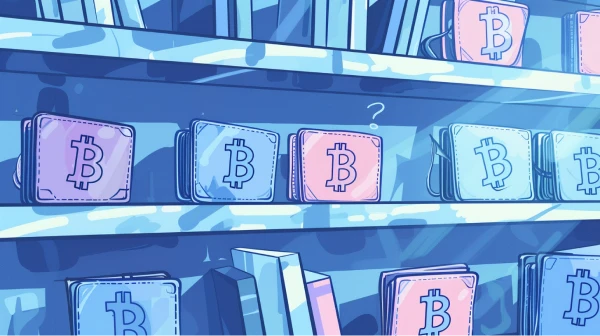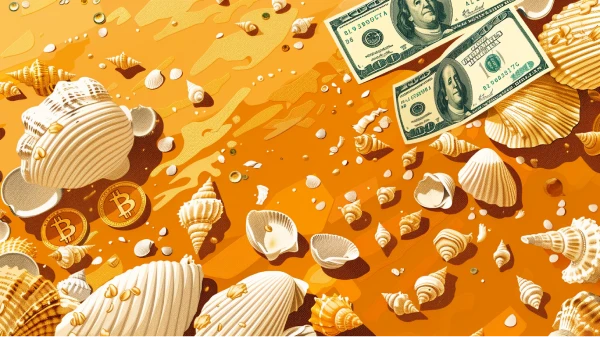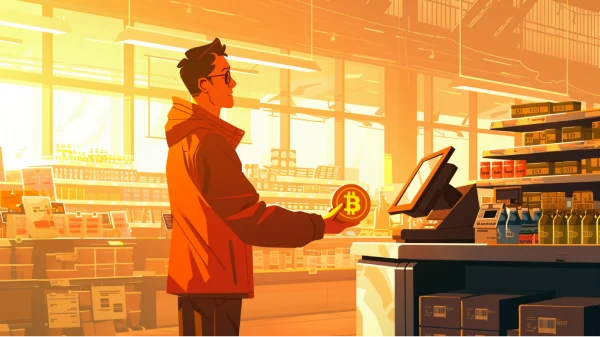What Is Fungibility?
Fungibility is a property of goods whose units are interchangeable. A good is fungible if one unit of the good always carries the exact same value as all other units of the good.
Fungibility is a desirable property for many goods, but it is an essential property for money. If money is not fungible, each unit of the money will carry a different value, and the money will have lost its medium of exchange property.
Divisibility is an important part of fungibility, especially for Bitcoin. Just as five $1 bills should purchase the same amount of goods as a single $5 bill, one bitcoin should carry the same purchasing power regardless of whether it is split into one, two, or ten UTXOs.
Is Bitcoin Fungible?
Fungibility is not a binary property of money; certain goods can be more or less fungible than others. As a borderless, apolitical money, Bitcoin has achieved significant fungibility, and usually trades at roughly the same price across the globe. However, government interference, criminal activity, and technological differences have occasionally led to certain bitcoin being more or less valuable than others.
Jurisdictional Bitcoin Premiums
Theoretically, Bitcoin premiums should not exist, given Bitcoin’s global nature. If two exchanges listed Bitcoin at different prices, traders would take advantage of the arbitrage opportunity and buy bitcoin at the exchange with the lower price and sell it at the exchange with the higher price until the price difference was eliminated.
However, when government restrictions prevent traders from moving bitcoin between certain exchanges, premiums can persist. Government regulations of Bitcoin vary widely across jurisdictions. Some governments openly embrace Bitcoin and the innovations and growth it brings, while others have attempted to ban its use as a currency within their borders.
As with most prohibitions and capital controls, Bitcoin restrictions or bans do not eliminate Bitcoin usage in a jurisdiction. Instead, they merely drive up the price of Bitcoin in that jurisdiction, creating a local premium. In Venezuela, Nigeria, Zimbabwe, South Korea, and India, restrictions have generated noticeable premiums at various times. In Nigeria, where the central bank attempted to ban bitcoin, demand exploded, but due to the difficulty of accessing international markets from Nigeria, a significant premium developed.
➤ Learn more about whether Bitcoin can be banned.
Bitcoin and Privacy Premiums
Geographic Bitcoin premiums are an example of Bitcoin lacking fungibility across legal jurisdictions. However, Bitcoin may lack fungibility across individual coins as well. This is not a significant issue today, but it may become an issue in the future depending on government regulations and Bitcoin’s privacy features.
Individual coins can hypothetically break away from the valuation of normal bitcoin for a few reasons. If a coin is the output of a well-known crime, such as a hack, a scam, or other illicit activity, certain exchanges or merchants may refuse to accept that bitcoin as payment. As a result, these coins might trade at a discount relative to the market price of bitcoin. As of 2021, this has been an extremely rare occurrence.
On the other hand, coins might trade at a premium if they have strong privacy. This trend is common today, especially on decentralized exchanges (DEXs), which do not collect AML-KYC data. Bitcoin users who value their privacy are willing to pay premiums in order to acquire bitcoin without revealing their identity to their counterparty, a third party, or a government.
Some coins might also become more valued than normal coins if they are considered special coins because of their history. For example, if Satoshi Nakamoto, the creator of Bitcoin, chose to auction his coins, they could foreseeably sell for above the market rate. This trend would not be problematic for Bitcoin, and is analogous to $2 bills, which often trade for more than $2 given their rarity.
How Chain Analysis Works
For the most part, chain analysis and privacy will be the driving force behind Bitcoin’s fungibility concerns if they arise in the future. Because all Bitcoin transactions are publicly recorded on the blockchain, surveillance companies and governments can analyze the history of coins and attempt to track coins which were used for criminal activity.
What Is Bitcoin Taint?
Coins with a history of use in criminal activity are sometimes called “tainted”. Taint is at best a probabilistic measure of how connected a coin is with past criminal activity. Taint is a subjective term, and is applied by different chain analysis companies based on the heuristics and assumptions they employ.
➤ Learn more about Bitcoin taint.
The Future of Bitcoin Fungibility
If Bitcoin completely loses its fungibility, its utility as a money and currency is degraded, and the burdens of accepting bitcoin as payment for goods and services will prevent its adoption. Bitcoin’s property of censorship resistance is reliant on Bitcoin’s fungibility. If specific bitcoin can be effectively blacklisted or deemed “not bitcoin”, censorship is possible and bitcoin is vulnerable to capture.
Fortunately, several Bitcoin privacy projects are constantly attempting to undermine the heuristics and assumptions made by chain analysis companies to apply taint to specific coins. These privacy projects are important to the mission of keeping Bitcoin fungible and thus useful as a global, decentralized money.
The competition between Bitcoin developers and surveillance companies and governments is likely to escalate as governments continually advance their surveillance capabilities and Bitcoin developers build more powerful techniques to defend privacy and invalidate chain analysis heuristics.
Notice: River does not provide investment, financial, tax, or legal advice. The information provided is general and illustrative in nature and therefore is not intended to provide, and should not be relied on for, tax advice. We encourage you to consult the appropriate tax professional to understand your personal tax circumstances.Key Takeaways
- Fungibility is a property of goods whose units are interchangeable.
- Fungibility is critical to preserving Bitcoin’s censorship resistance and privacy.
- Goods which are not fungible or divisible serve as poor monetary goods. Bitcoin has infinite divisibility and strong fungibility.


